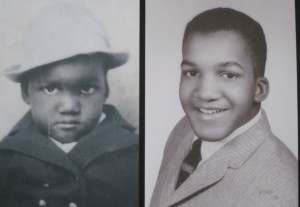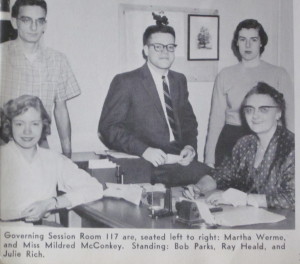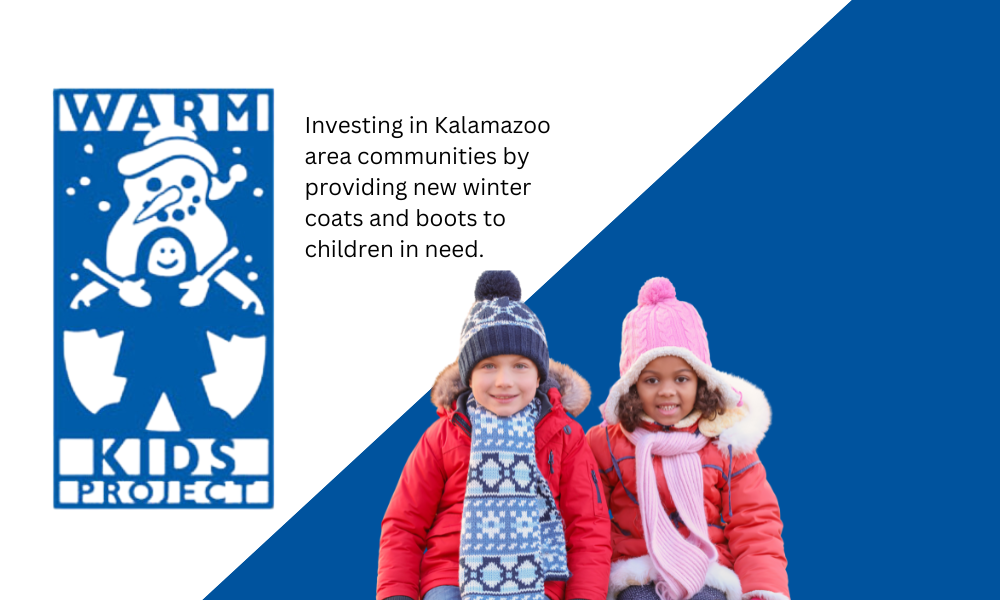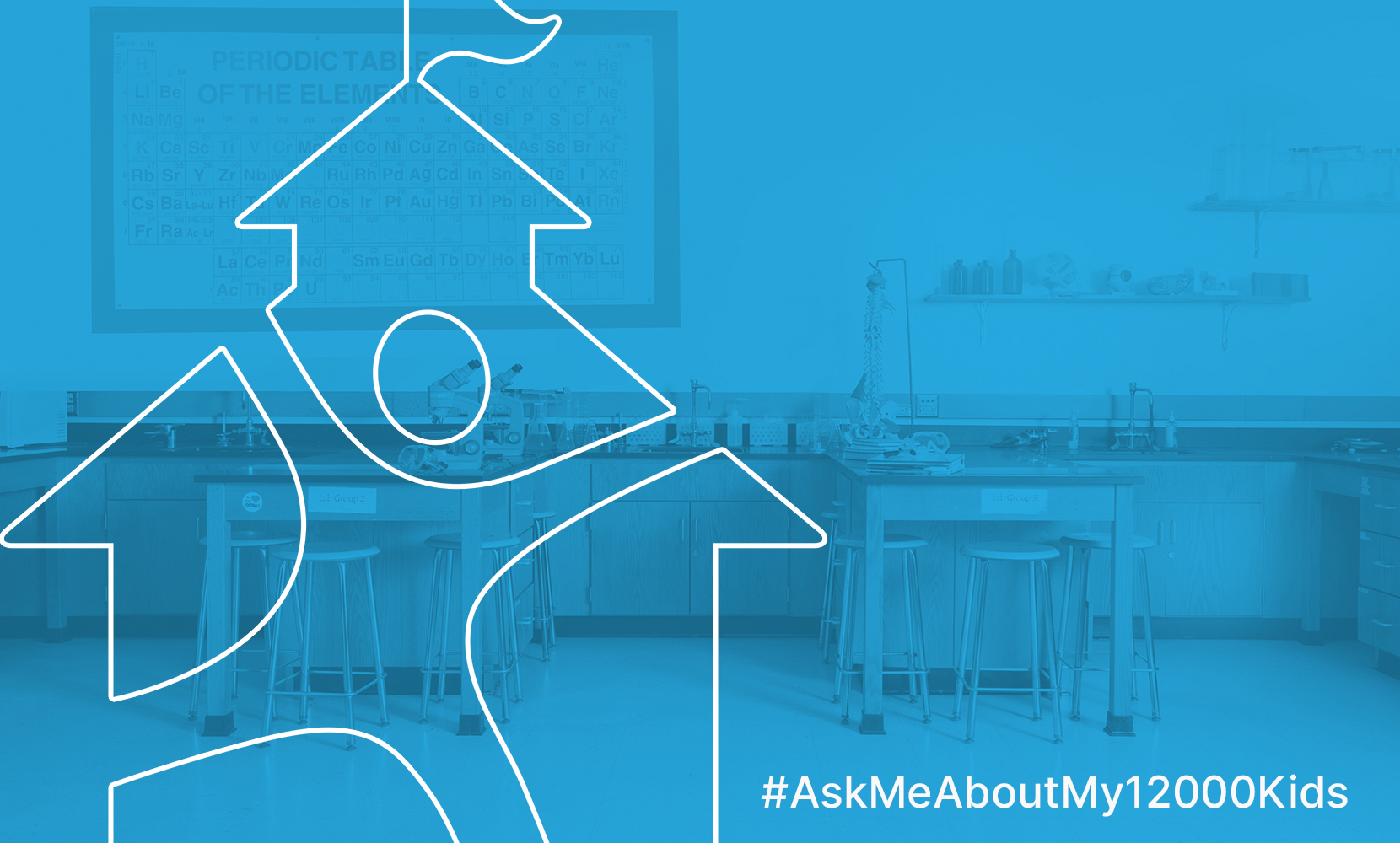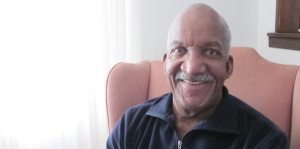 There are community pillars and there are community pillars. On Thursday, January 16, 2020, Kalamazoo lost one of its grandest, Moses L. Walker.
There are community pillars and there are community pillars. On Thursday, January 16, 2020, Kalamazoo lost one of its grandest, Moses L. Walker.
In reflecting on the amazing life of this longtime CIS board member, CIS Executive James Devers says, “Along with the Kalamazoo community, the CIS family mourns the loss of Moses Walker. His was a life of service, love, compassion, and excellence. Our deepest condolences go out to his wife and the entire Walker family.”
Four years ago, we sat down with Moses to learn about the kind of boy he once was, and the people and experiences that shaped him into the man he became. Due to space constraints, we published only a portion of that conversation in the CIS newsletter, that issue’s theme: “Boys to Men.” We also included a few of his responses in a March 22, 2016 post here at Ask Me About My 12,000 Kids. In tribute to this long time CIS Board Member, we now publish the interview in its entirety, along with some of the photos Moses provided us at that time.
Conversation with CIS Board Member: Moses L. Walker
Communities In Schools board member Moses Walker is a truth-teller, justice seeker, and numbers guy. As a boy, he walked everywhere. As a man, he has touched the lives of practically everyone who walks anywhere in Kalamazoo, whether they know it or not. Born in Kalamazoo, the community that raised him, Moses Walker has, in turn, helped to raise this community. Here, he shares some of his thoughts on boys, education, community, and much more.
Can you tell us a little about the kind of boy you once were? What or who helped shape you into the man you became?
Good question. Growing up I was always viewed as being bright. Even as a little child, I was given speeches to memorize for school and church programs. And if someone was given two verses to memorize, I was given four. There were high expectations for me. I benefited from my older cousins working with me and was well prepared when I got to school and was recognized by my teachers.
The Douglass Community Association shaped me and my friends, friends like Chuck Warfield. We were the Children of Douglass. We went to nursery school there. We played sports, learned how to dance, and shoot pool. Remember, this was at a time when black educators were refused jobs in the Kalamazoo Public Schools so we were the beneficiaries of Douglass youth workers like Ms. Juanita Goodwin and Mr. John Caldwell. They ended up with distinguished careers—as teachers and principals and retiring from the Kalamazoo Public Schools.
While there were no black educators when I was in school—I attended Lincoln School from kindergarten through ninth grade and then [Kalamazoo] Central High from tenth through twelfth grade—I was recognized and encouraged by my teachers. Even though I was always on the academic track, I admit, I did not always apply myself. My high school advisor Mildred McConkey was quite instrumental in my development and pointed out that I didn’t always apply myself. In fact, she was the one who said, ‘He’s smart but lazy.’ And it was true! She helped me get ready to go to college and made recommendations since I wasn’t top of my class.
I went to Western Michigan University, and then entered the military mid-stream. I experienced racism but it taught me a lot. Just being smart is not enough. There are a lot of smart people in the world. A lot of people have gifts. But that is not enough. What are you going to do with it? I’m not bitter about these negative experiences because they were one of the best things that happened to me. It was a wake up-shake up and the experiences got me on track. I returned to college, finished in two years, and then headed to graduate school at the School of Social Work at Wayne State University.
So yes, the encouragement and support I received throughout my schooling made me who I am but it was the negative experience of the military that brought everything home for me.
Do you think boys today face different pressures than what their fathers faced?
That’s a difficult question for me to answer. We have three grandchildren—my son’s three daughters—so they are the children of today. That’s two generations removed from me! But, from a societal standpoint, I can tell you: things change all the time. My generation was raised in a different way. We came from large families. I was born in 1940 and one of nine; that was not uncommon. We were close to each other—literally. We lived close to our friends. We could walk to each other’s houses. We had a different sense of community and sense of neighborhood. Everyone was your parent. Everyone had the right to correct you. That doesn’t exist today.
Even transportation is different. We walked everywhere. We didn’t own cars and many of our parents didn’t either. That sense of neighborhood when I was growing up doesn’t exist today. Many children have lost that sense of belonging, a sense of a greater bond. That saying, ‘It takes a village to raise a child?’ Well, that was truer in my day. We were a village. Children today are not growing up in the same village. People are less connected and as a result, peer pressures have greater influence on children and how they react to them.
According to Dan Kindlon and Michael Thompson, psychologists and the authors of Raising Cain: Protecting the Emotional Life of Boys, too many of our young men “remain emotionally illiterate in pursuit of a caricature of strong, silent masculinity.” Do you agree?
Probably. Too many of our young men today are raised in single parent, female households. We don’t see black males today involved in children’s lives as they once were. There is a major gap. In fact, over 70 % of our young boys are born into homes without men around. In the barbershop, we talk about how women can do the best they can, but that absence of a male figure—a positive male role model—makes a big difference. The absence of this, especially during a boy’s developmental years is a contributing factor to this problem.
What do we need to do better as a community to equip our boys to become successful and fulfilled young men?
That’s a difficult question. First of all, to become successful and fulfilled, you’ve got to be educated. Boys, particularly black males right now are not doing well when it comes to graduating on time or not graduating at all. White females are at the top, with 88% graduating on time, second is black females, followed by white males and then we see a major decline, with only 61% of black males are graduating on time. That’s a big warning sign.
We don’t want our boys heading to Jackson State University on 6000 Cooper Street. That’s the wrong university! But it’s hard. When children lack hope, are in an environment where education is not stressed, not passed on, it’s hard. But we have to stop making excuses. There are no easy ways but education is key. In my parents’ time, you just needed a pick and a shovel. These days, it’s tough succeeding without the necessary technical and academic training that today’s world demands. We need to engage, engage, engage, and keep our boys—and girls—in school.
If you could give only two pieces of wisdom to parents on raising sons, what would they be?
Value education. You must value it yourself in order to pass this along. Number two: make sure your child is putting forth the effort. Regardless of whether your child is black or white, they are not going anywhere if they aren’t prepared technology-wise or academically, so make sure they’re working hard. It starts with you. There’s no easy road. Hard work. It really comes down to recognizing the importance of education and sitting on your butt and doing the work. The Kalamazoo Promise guarantees opportunity. But the Promise doesn’t guarantee success or results.
There are many great organizations within our community. What is it about CIS that attracts you to give of your time and talent to this particular board?
I believe in what CIS stands for and the target population we serve. CIS is reaching out to some of our most vulnerable children and supporting them in a multitude of way so they can be successful. That’s really what it’s all about. Also, my relationship with [Founding CIS Executive Director] Pam Kingery—that goes back a long ways. At the end of the day, though, the CIS mission—surrounding students with a community of support so they can stay in school and succeed in life—is compelling. Some of our kids need additional supports and CIS is helping them academically, socially, and beyond.
Thank you, Moses Walker!
Tags: Charles Warfield, CIS Board Member, Communities In Schools of Kalamazoo, Douglass Community Association, James Devers, John Caldwell, Juanita Goodwin, Kalamazoo Public Schools, Mildred McConkey, Moses L. Walker, Pam Kingery


